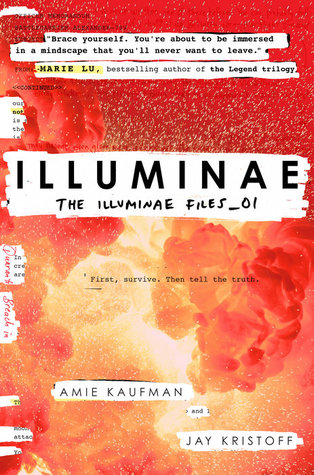
In this book AIDEN might be a little too human at times.
In that moment I wonder…am I truly alive?
A variation on this question has been asked by many a computer and automaton over the years in fantasy and science fiction. Whether its the little boy in AI: Artificial Intelligence, AIDEN in Illuminae, or even the golem in Dragon Age: Origins, its not uncommon to see machines created to perform human tasks questioning how close they are to their creators in the grand scheme of things.
I suppose this theme was inevitable for humanity to explore in fiction given stories from the past that explored man’s questioning how close he was to the gods. Just look at any number of stories from Greek or other mythologies wherein mortals aspire to become gods or to prove they are on par with the gods themselves. Whether its us exploring our relationship with the creators of the universe or our creations aspirations to be more like us, examining the meaning and breadth of humanity is a commonly explored theme in storytelling.

If you like “Watership Down” you’ll probably enjoy “A Taste for Rabbit”
But it isn’t always characters of the human or artificial variety that are used to explore this theme. Take for example the wonderful book A Taste for Rabbit by Linda Zuckerman. In it we are introduced to a world where carnivores like foxes, badgers, weasels etc. are sentient and have a very human society. Herbivores such as rabbits, mice, voles and the like are hunted and eaten because they are just animals, not thinking creatures like the predators…
Or are they?
In an out of the way corner of the world, well outside the eye and thought of the predators, the rabbits (once considered a delicacy and long thought hunted to extinction) have developed sentience and their own civilization complete with a walled city and weapons like bows and arrows. Yet an entire culture can’t stay hidden forever, and the two civilizations are about to clash.
A Taste for Rabbit thoroughly explores the theme of what it means to be human by asking how ‘human’ one has to be before you stop being food. The animal nature of the characters provides a very poignant lens through which to explore this. In one scene a rabbit and fox realize that their scents are now neutral; the rabbit doesn’t smell like food to the fox and the fox gives off no predator scent to the rabbit. Which makes the accord reached by these two characters all the more horrible.
Be prepared to think long and hard about what humanity is really all about if you decide to pick up this novel, as I think you all should. In a future post I’ll discuss other books that touch on this theme in a different way.
What stories do you find make you think hard about humanity? Talk about it in the comments!

